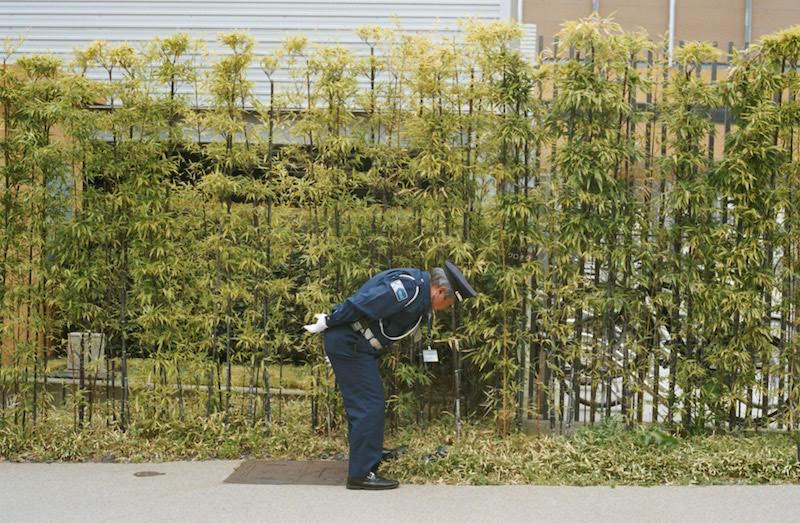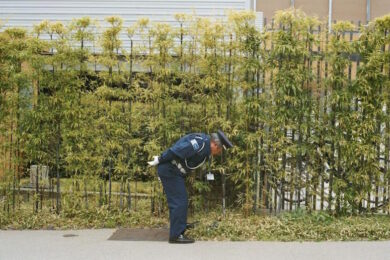There’s more than a little to be said about the act of prominently taking inspiration from other cultures to inform a work of art. While intention, sensitivity and sincerity will no doubt play a part in that work’s reception – cultural appropriation, orientalism and exoticisation are not to be taken lightly – on a base level, there’s nothing inherently wrong with finding a kind of resonance in something once completely unfamiliar. How many artists have been influenced by the unmistakable compositions of Joe Hisaishi, rooted as they are in the Japanese classical tradition, himself inextricably tied by their working history to the legendary animator Hayao Miyazaki? The list of names is innumerable – though, for every ten respectful refractions of a national character or cultural mindset, there is of course a Magic Whip.
I mention East Asia in particular not just because it seems a perennial font of inspiration to Western artists en masse – from GZA on Liquid Swords, through Phoenix’s ‘Entertainment’, to elements of Oneohtrix Point Never’s R Plus Seven – but because Gold Panda’s fourth studio album, Good Luck And Do Your Best, is firmly rooted in his personal experience of and interaction with Japan. From the unambiguous, never-quite-cresting wave of the recurring koto to the cover art, it’s an album of sonic psychogeography — drifting indeterminably for long periods of time, until punctuated by something less expected, intermittently loosening and tightening its grip on the attention. Sporadic hallucinations in a sensory deprivation tank.
But for all the instrumental hints and cues that point toward Japan, the title itself provides some of the most acute insight into the intentions and inner workings of the album and of Derwin Schlecker’s relationship with the island. On the face of it a simple mistranslation in conversation with a Hiroshima taxi driver, “Good luck and do your best” is a potent reminder of two things: the first is that, in one way or another, regardless of how hard we might try to immerse ourselves in a culture or embed ourselves within the lives of other people around us, we are always on the periphery – always, albeit to varying degrees, outside of someone else’s experience. (In this case, alienated by language.) The second is that we’re also always just on the cusp of reappraising the monotonous as the momentous; of some kind of everyday alchemy.
In fact, I recently received an email from a French publicist that opened with “I hope you thrive”. While I can’t recall even a little what the message itself was in relation to, it reframed that mundane interaction into something else completely. And this is where Good Luck And Do Your Best sits conceptually: not so much a musical travel diary of time spent in the particular atmospheres of another environment, though texturally present throughout, but perched on that precarious knife-edge of the Magical Realist tradition.
This album has more of that other great Japanese pop culture icon, Haruki Murakami, about it than it does the musical inferences of, say, someone like Ryuichi Sakomoto. What Good Luck And Do Your Best does so well – and what it shares with novels like Norwegian Wood or Kafka on the Shore – is to give the impression of the dream, without drawing attention to its strangeness to the point where it becomes jarring. On tracks like ‘In My Car’ and ‘Metal Bird’ this plays out mostly through persistent repetition and the juxtaposition of the looping, sideways-shuffling instrumentation with the omnidirectional quality of the vocal sample. The cumulative effect is one of subtle disorientation or slight vertigo: enough to skew the angle of the world ever so slightly, just to the point of perceptibility, but never enough to force a significant sense of being unbalanced or the kind of “kick” that undoes illusion.
‘Chiba’ and ‘Unthank’ seem to run with this idea, too. The slide and wobble of the former gives the impression of an only-slightly-concave mirror, almost normal but just not quite right, where the latter seems simultaneously to move both at incredible pace and with a glacial lethargy. Both the sense of self and the notion of time are distorted by the smallest margin, and as listeners — as dreamers — we accept this, if only for a time, as our new normality.
It’s on ‘Pink And Green’, though, where the sense of the not-quite-awake, perhaps even the uncanny, really takes root and defines the rest of what unfolds in Gold Panda’s dream world. On the surface, ‘Pink And Green’ is opulent – almost veering into beach-at-dusk, chill-out territory – the twinkling of chimes and the chatter of the hi-hat like voices in the foreground. It’s the low end, however, that tugs at the edges of the mind: the slightly-muffled kick drum, a sustained rumble in the distance, conversation in another room, perhaps even traffic noise, reminding the listener that there is a world beyond the one unfolding directly in front of them. More than that, its earthy heft in comparison to the air-like sensation of the high end has a kind of gravity that, despite seeming “further away” – ever so slightly out of reach – is more “real” than anything in the immediate lived experience: not that you must wake, but a subdued reminder that, at some point, you can and will be yanked away from this utopian vision. As Murakami himself puts it, “Memories warm you up from the inside. But they also tear you apart.”
Whether you follow the more conceptual, Magical Realist reading or the narrative that Gold Panda (though, what’s more indicative of fantastical leanings than an anthropomorphised, metallic bear I don’t know) himself sets out in conversation and press releases, the theme of separation — and its opposite number in unification — still runs through Good Luck And Do Your Best. Whether it’s the dream / wake divide or the English / Japanese language barrier, the initial segregation gives way eventually to something else. Something all-encompassing.
Follow @karlthomassmith on Twitter for more



